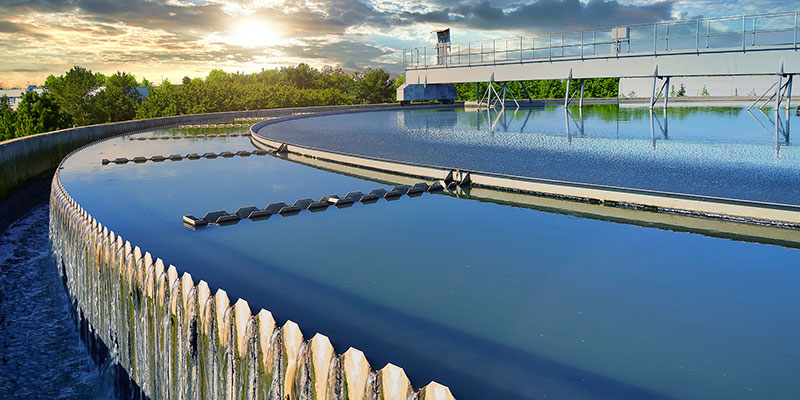Economies and ecosystems are changing, and resilience will mean doing more with less water. Wastewater recycling does just that, making the most of every drop.
Recycling wastewater can save money and help the environment
Historically, water recycling has been restrained because of seemingly limitless surface and groundwater resources as well as psychological factors. However, now that all sectors are confronting hard limits on traditional sources, water recycling is getting a second look, and many have concluded that water recycling is a no-brainer. Here are some of the top reasons.
1.) Increased profits and efficiencies for business
Previous feasibility studies have placed many water-recycling projects at or around break-even. New research, however, has found that traditional cost-benefit analyses have unfairly underestimated the feasibility of recycling. The research concludes that wastewater recycling is in fact profitable in many scenarios.
While water rates alone may justify the investment in recycling, there are other cost savings as well. In industry, struggles over water with a host region may drive voters to choose water over jobs and lead to costly litigation and political pushback. Recycling can slash the amount of water used, aligning government and business interests and fostering mutually supportive local relationships.
When businesses recycle wastewater, they can also benefit from an elevated environmental, social, and governance (ESG) reputation in the socially-conscious investor community. Unlike other “greenwashing” claims by companies, water recycling can easily be recognized as a legitimate sustainability initiative, as it brings very real and dramatic change in the amount of water saved.
2.) Less need for transportation
Treating wastewater onsite to non-potable reuse standards and reusing effluent locally cuts out the distant middleman, producing dramatic savings. Reuse is much less expensive than paying a utility to dispose of wastewater and then paying again to buy new water for non-potable applications.
3.) Climate resilience and sustainability
Perhaps the best reason to recycle water is conservation of the natural resources upon which our ecosystems and economies depend. The world has begun to see mighty rivers and inland seas drying up and cities and industries brought to their knees by drought. The world is changing, and resilience will mean doing more with less water.
Water recycling makes the most of every drop available, thus increasing economic resilience and ecological sustainability. The cost of preparing for water risk has been estimated at five times less than the costs of inaction.
Much of the water we use is groundwater. Though underground, it has a very real effect on the visible world. Low groundwater has been linked to worsening wildfires and harm to riverine ecosystems, and depleted aquifers in agricultural regions can have drastic impacts. Reusing wastewater can reduce the burden on natural freshwater and safely help natural processes to recharge groundwater.
Solutions for recycling wastewater
The membrane aerated biofilm reactor (MABR) technology at the core of Fluence’s Aspiral™ units treats wastewater to produce an effluent suitable for groundwater recharge under the strictest regulatory frameworks, including California Title 22 and China’s Class 1A.
Fluence has the experience and hardware to tackle even the final frontier of water recycling, direct potable reuse (DPR). DPR transforms wastewater, even municipal sewage, into safe drinking water. We’re now partnering with MEB Energy on a South African DPR plant featuring Aspiral™, tertiary treatment, ultrafiltration, reverse osmosis, advanced oxidation, and disinfection.
In terms of cost, Fluence’s flexible financing can deliver bundled water recycling assets, operations, and maintenance with no upfront investment. Contact Fluence for details on our Water Management Services.

